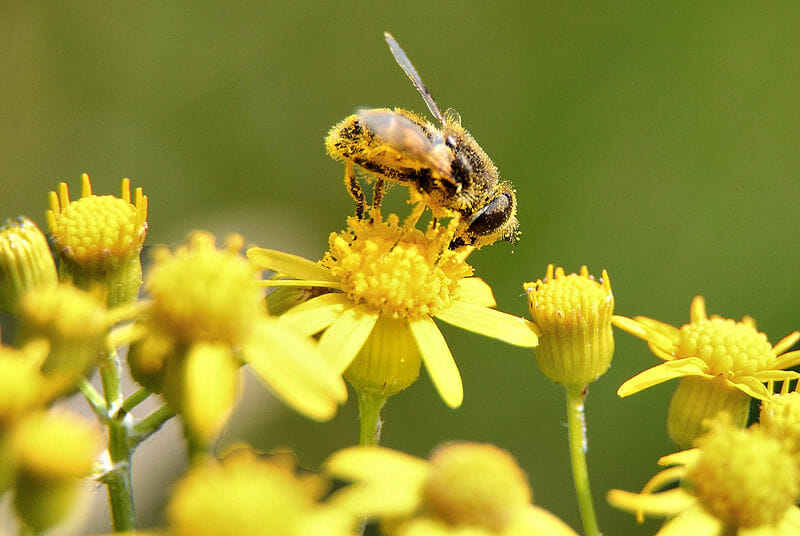Climate Change Could Worsen Seasonal Allergies
Warmer temperatures resulting from climate change may be causing longer growing seasons and a more intense release of pollen. Wikimedia Commons
Wikimedia Commons
Eyes streaming in the warm weather? Does your nose run; does it itch? Do your ears hurt, do you have a general feeling of malaise?
Climate change is likely to be one of the causes of what is considered to be among the most difficult years ever in North America for those who suffer from a range of spring and summertime allergies.
An abundance of pollen in the air – leading to what specialists term an “allergy explosion” in many regions – is causing widespread discomfort and, for some, serious health problems. Severe sinusitis and what’s generally referred to as hay fever are the most common manifestations of pollen allergy.
Areas in the south of the US, in the states of Louisiana and Georgia, and in central regions such as Nebraska and Kansas, are said to be worst affected.
“Warmer temperatures caused by climate change are really causing longer growing seasons and more intense release of pollen”, says Kenny Mendez, president of the Asthma and Allergy Foundation of America. Pollen from various grasses, plants and trees can all cause big problems for allergy sufferers.
Pollen from ragweed or Ambrosia artemisiifolia, a weed native to the US and found throughout the country, is considered to be one of the main reasons for a big upsurge in allergies.
US plant specialists say that, mainly because of changes in climate, including warmer, wetter winters, the pollen-producing season of ragweed increased by nearly a month in the 20-year period to 2015.
This is very bad news for allergy sufferers: one ragweed plant can produce a billion grains of pollen in one growing season, and the pollen can be blown on the wind for hundreds of miles.
Other parts of the world are also on ragweed alert. The plant has been spreading across warmer regions of Europe for the past 50 years.
Twelve-fold increase
Researchers at the University of Leicester in the UK found ragweed pollen levels on some days over a recent summer in the English Midlands were enough to cause severe hay fever and asthma attacks.
EU scientists who worked on the Atopica project, examining the relationship between land use, air quality and climate, found that a combination of warmer winters due to climate change and the spread of invasive ragweed could result in a twelve-fold increase in pollen levels in some parts of Europe by mid-century.
A comprehensive Europe-wide ragweed eradication programme – and action to combat climate change – are vital in order to tackle the ragweed problem, say plant specialists.
Increased allergy rates are due not only to changes in climate and the worldwide spread of various plant species.
Too protective
Air pollution – much of it caused by climate-changing greenhouse gases from power stations and other industrial facilities – is another factor leading to more allergies. Health professionals say a tendency in the developed world to over-protect children and “over-sanitise” their environments is also to blame; such protective behaviour means immune systems fail to be strengthened.
But scientists are becoming increasingly aware of the critical impact climate change is having on the growing cycle of plants – and on health.
“The influence of climate change on plant behaviour exacerbates or adds an additional factor to the number of people suffering from allergy and asthma”, says Lewis Ziska, a weed ecologist at the US Department of Agriculture, quoted by the Union of Concerned Scientists in the US.
Left unchecked, says Ziska, rising carbon dioxide levels and further warming pose serious risks for allergy sufferers.
Your support matters…Independent journalism is under threat and overshadowed by heavily funded mainstream media.
You can help level the playing field. Become a member.
Your tax-deductible contribution keeps us digging beneath the headlines to give you thought-provoking, investigative reporting and analysis that unearths what's really happening- without compromise.
Give today to support our courageous, independent journalists.




You need to be a supporter to comment.
There are currently no responses to this article.
Be the first to respond.